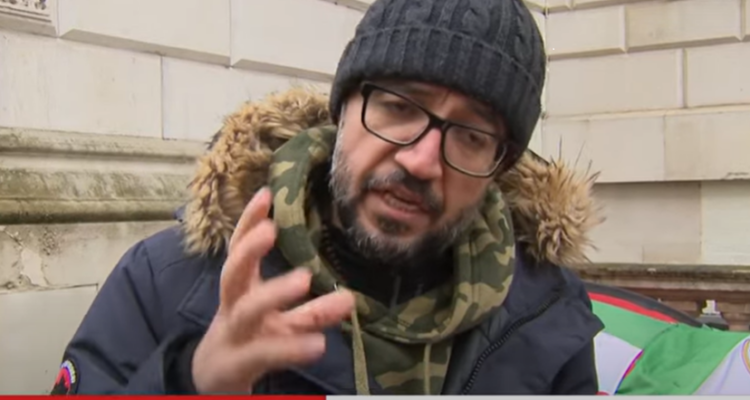750 Farsi-speaking volunteers are engaged in pro-Israel advocacy and are making the case for Israel to Iranians abroad.
By Vered Weiss, World Israel News
Iranian activists held signs in support of Israel at a pedestrian bridge at the entrance of Tehran.
Many protestors who bravely risked reprisals from Iran’s autocratic government held signs that said, “We Are Ready,” a message that echoes sentiments expressed by Vahid Beheshti who, during his visit to Israel, was the first Iranian to speak at the Knesset.
The message “We Are Ready” is an encouragement to Israel to attack and defeat the Ayatollah’s regime.
Vahid Beheshti said, “On my last trip to Israel, as the first Iranian to speak in the Knesset, I stated that the only way to achieve peace in the region is to eliminate the Islamic Republic.”
He added, “We have an army of 80 million Iranians who are thirsty for freedom and democracy to meet them.”
Beheshti urged Israel to strike Islamic Revolutionary Guards Corp (IRGC) headquarters in Iran as well as nuclear centers.
“Referring to my statements in the Israeli parliament, the brave people of Iran expressed their demand for support in fighting against terrorists of the Islamic Republic,” said Beheshti.
In addition to Beheshti’s efforts, 750 Farsi-speaking volunteers are engaging in pro-Israel advocacy to make the case for Israel to Iranians abroad.
The initiative, sponsored by the Merage Foundation, was founded by Sigal Aferiat Cohen, who was born in Iran and wanted to counteract the anti-Israel hate characteristic of many Farsi-speaking spaces online.
She said, “Since I was born in Iran and speak the language, I was attracted to news in the Persian language, as I wanted to understand how the war is portrayed there, and I quickly found myself responding to the growing number of expressions of hatred, especially in Iranian Telegram groups.”
“I quickly realized that I alone wouldn’t be able to make an impact, and I thought about how to explain the Israeli narrative indirectly, in order to get the message through,” Cohen said.
“I concluded that using Farsi would be an unorthodox way through which we could explain the Israeli side,” she concluded.





